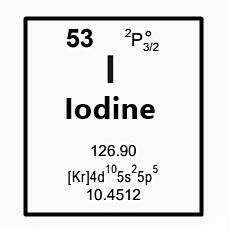Dairy products and Asthma
The link between milk & asthma
Fact Checked
×All the content published in our website is fact checked to validate its accuracy.
Visit our guidelines web page to learn more about our strict processes regarding how we review our content's sources: reliable and reputable journals, media websites, universities, colleges, organizations, and professionals.
Our articles are based on scientific evidence, and the references are included in its footnotes, which are clickable links to sound scientific papers.
First published: 20.Nov.2024
Overview
Asthma & milk: some people with cow’s milk allergy can experience asthma-like symptoms when they consume milk. For the rest of the population, the "milk myth" linking asthma with dairy products is baseless.
This article will look into cow's milk allergy, and how it affects sensitized people who suffer from asthma.
References and Further Reading
(1) Flom JD, Sicherer SH., (2019). Epidemiology of Cow's Milk Allergy. Nutrients. 2019; 11(5):1051. https://doi.org/10.3390/nu11051051
(2) M.G. Murray, J. Kanugaa, E. Yeeb, S.L. Bahna, (2013). Milk-induced wheezing in children with asthma. Allergologia et Immunopathologia Vol. 41. Issue 5. pp 310-314 (September - October 2013) DOI: 10.1016/j.aller.2012.07.002
(3) Zdenek Pelikan, (2013). Asthmatic Response to Milk Ingestion Challenge in Adults: A Comparison of the Open and Double-Blind Challenges. Int Arch Allergy Immunol 1 May 2013; 161 (2): 163–173. https://doi.org/10.1159/000345130
(4) Caffarelli C, Garrubba M, Greco C, Mastrorilli C, Povesi Dascola C., (2016). Asthma and Food Allergy in Children: Is There a Connection or Interaction?. Front Pediatr. 2016 Apr 5;4:34. doi: 10.3389/fped.2016.00034. PMID: 2709229
(5) Saadeh D, Salameh P, Caillaud D, et al. , (2015). Prevalence and association of asthma and allergic sensitization with dietary factors in schoolchildren: data from the french six cities study. BMC Public Health. 2015;15:993. PMID:26423141
(6) Walsh J, Meyer R, Shah N, Quekett J, Fox AT., (2016). Differentiating milk allergy (IgE and non-IgE mediated) from lactose intolerance: understanding the underlying mechanisms and presentations. Br J Gen Pract. 2016 Aug;66(649):e609-11. doi: 10.3399/bjgp16X686521. PMID: 27481986
(7) National Asthma Council Australia. Fact sheet, Healthy eating for asthma. Accessed: Nov. 19, 2024
(8) Barnard, Neal D., editor., (2023). "Asthma." Nutrition Guide for Clinicians, 3rd ed.. Physicians Committee for Responsible Medicine, 2023
(9) Bartley, J.; McGlashan, S.R., (2010). Does milk increase mucus production?. Med. Hypotheses 2010, 74, 732–734
(10) Wüthrich, B., Schmid, A., Walther, B., and Sieber, R., (2005). Milk consumption does not lead to mucus production or occurrence of asthma. Journal of the American College of Nutrition, 24(sup6), 547S-555S.
About this Article
Dairy products and Asthma, A. Whittall
©2024 Fit-and-Well.com. First Published: 20.Nov.2024. Updated 20.Nov.2024. Update scheduled for 20.Nov.2027. https://www.fit-and-well.com/diet-food/dairy-and-asthma.html



